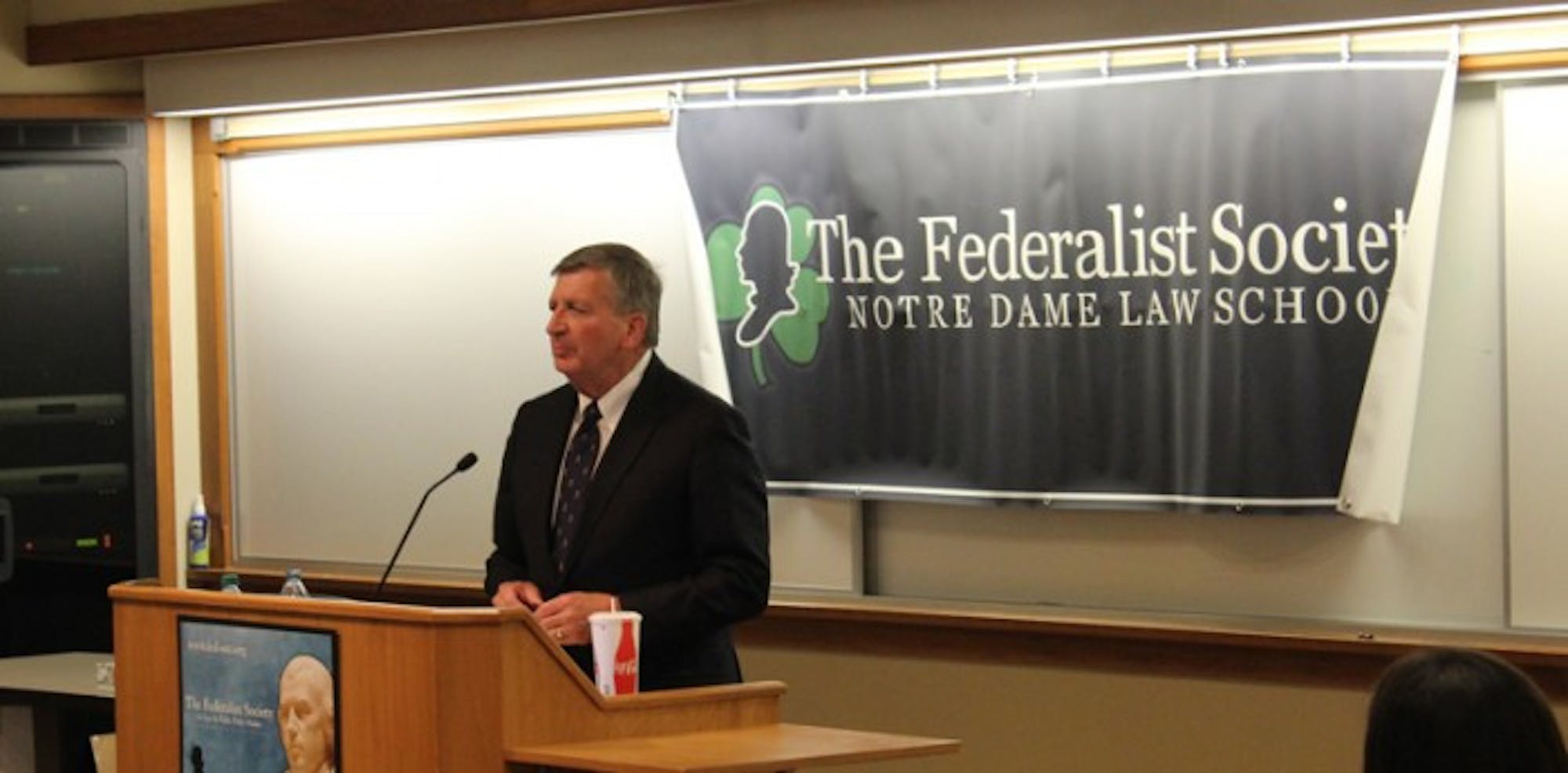Dr. Ralph A. Rossum of Claremont McKenna College gave a lecture on his book “Understanding Clarence Thomas: The Jurisprudence of Constitutional Restoration”on Thursday night in the Eck Hall of Law. Rossum focused on exploring Thomas’ specific jurisprudence, or philosophy of law, called originalism.


The Potenziani Program in Constitutional Studies sponsored the lecture, and Dr. Vincent Phillip Muñoz, associate professor of political science, introduced Rossum. Rossum began by explaining Thomas’s jurisprudence.
“There are three forms of originalism, which are known as original intent, original understanding and original public meaning,” Rossum said. “Original intent focuses on the intent of the authors of the Constitution, original understanding focuses on what the provisions of the Constitution meant to the delegates and original public meaning focuses on the meaning in the context of the public with the vocabulary and beliefs of the time.”
Rossum wrote a book on Justice Antonin Scalia and his jurisprudence in 2006. He decided to focus on Thomas because his beliefs were similar to Scalia’s, but also encompassed important differences.
“Both Scalia and Thomas remain unswayed by the claims of precedent,” Rossum said. “Scalia focuses on original public meaning, while Thomas focuses on the general meaning, which incorporates Scalia’s approach but also considers intent and understanding.”
Rossum said another difference between the two justices is their opinions of the Declaration of Independence. Scalia rejects it because he believes it is not relevant, but Thomas highly values the document, Rossum said.
“To Thomas, the original intention of the Constitution was to be the fulfillment of the Declaration of Independence,” Rossum said.

Rossum gave examples of Thomas’s originalist jurisprudence as applied to the Interstate Commerce Clause, a part of the Commerce Clause that allows Congress to regulate economic activity between states. Rossum said Thomas votes against cases in which the Interstate Commerce Clause is applied, such as Gonzales v. Raisch, because it was not included in the original Constitution.
Dr. Donald Drakeman of Princeton University closed the event with remarks on Rossum’s book.
“It is a wonderfully done book that shows the incredible consistency of Thomas’s jurisprudence,” Drakeman said.












